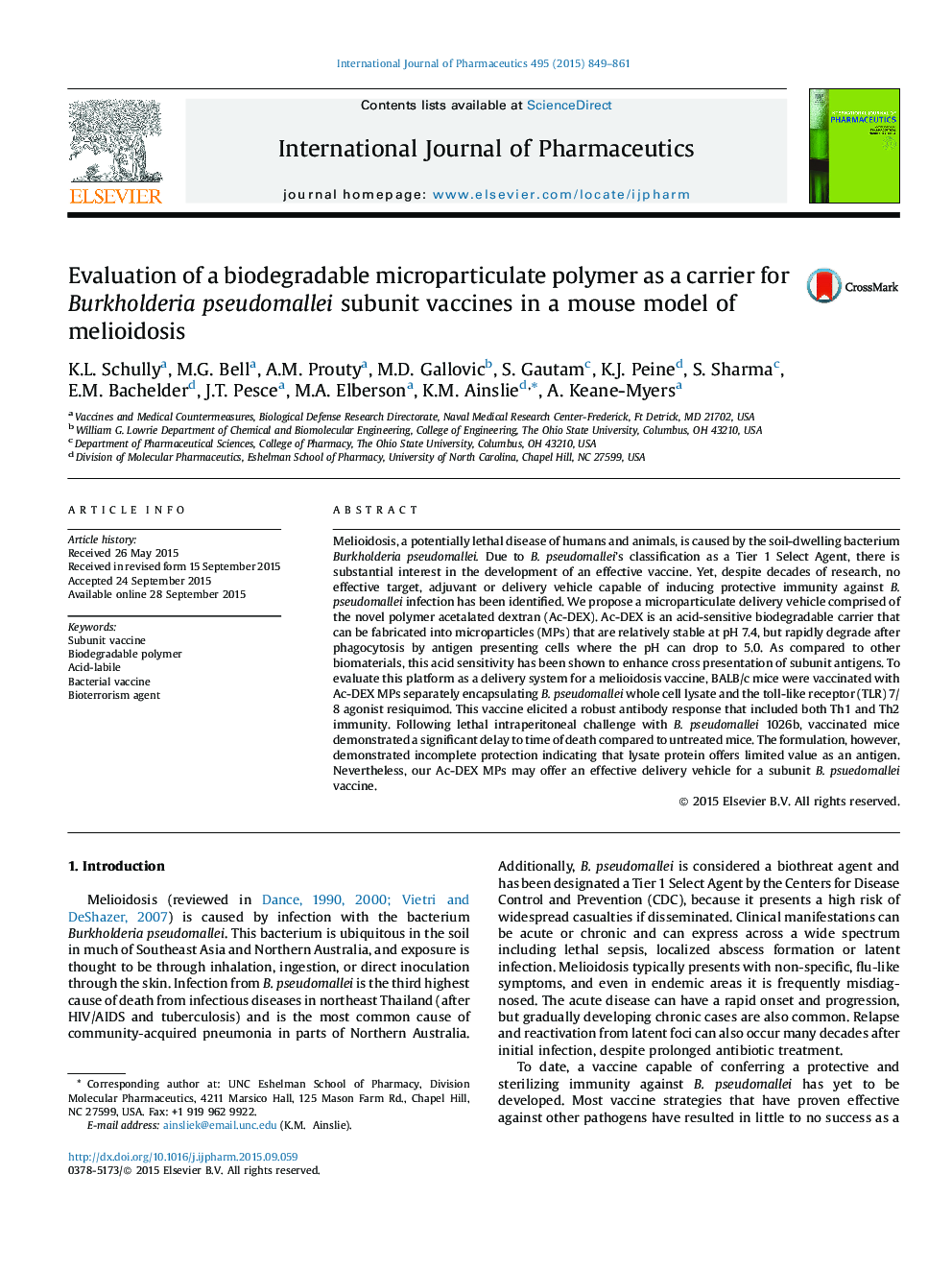| Article ID | Journal | Published Year | Pages | File Type |
|---|---|---|---|---|
| 2501198 | International Journal of Pharmaceutics | 2015 | 13 Pages |
Melioidosis, a potentially lethal disease of humans and animals, is caused by the soil-dwelling bacterium Burkholderia pseudomallei. Due to B. pseudomallei’s classification as a Tier 1 Select Agent, there is substantial interest in the development of an effective vaccine. Yet, despite decades of research, no effective target, adjuvant or delivery vehicle capable of inducing protective immunity against B. pseudomallei infection has been identified. We propose a microparticulate delivery vehicle comprised of the novel polymer acetalated dextran (Ac-DEX). Ac-DEX is an acid-sensitive biodegradable carrier that can be fabricated into microparticles (MPs) that are relatively stable at pH 7.4, but rapidly degrade after phagocytosis by antigen presenting cells where the pH can drop to 5.0. As compared to other biomaterials, this acid sensitivity has been shown to enhance cross presentation of subunit antigens. To evaluate this platform as a delivery system for a melioidosis vaccine, BALB/c mice were vaccinated with Ac-DEX MPs separately encapsulating B. pseudomallei whole cell lysate and the toll-like receptor (TLR) 7/8 agonist resiquimod. This vaccine elicited a robust antibody response that included both Th1 and Th2 immunity. Following lethal intraperitoneal challenge with B. pseudomallei 1026b, vaccinated mice demonstrated a significant delay to time of death compared to untreated mice. The formulation, however, demonstrated incomplete protection indicating that lysate protein offers limited value as an antigen. Nevertheless, our Ac-DEX MPs may offer an effective delivery vehicle for a subunit B. psuedomallei vaccine.
Graphical abstractFigure optionsDownload full-size imageDownload high-quality image (132 K)Download as PowerPoint slide
